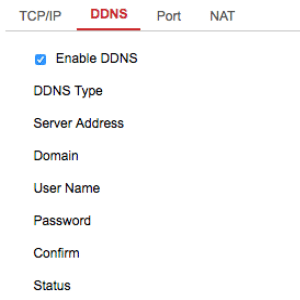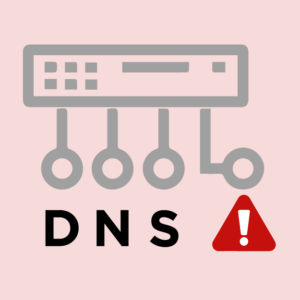By now, you are probably familiarized with Domain Name System (DNS) and how it works. It is the service that connects or maps the numeric aspects of sites you visit, or the IP addresses, to the domain names of those pages.
However, with the boom of dynamic IP addresses, another need developed. The DNS service is only good for static IP addresses because the user identity doesn’t change every time its device connects to the web. However, the Dynamic Domain Name System, or DDNS, is perfect for supporting dynamic or changing IP numbers.
DDNS is, therefore, a useful tool to have if the user wants to access his or her home computer from a remote place, or host a web or FTP server advertise a public name to prospective users, among other things. Since home networks usually get dynamic IP addresses from their Internet Service Providers (ISPs,) DDNS is especially handy if you run that kind of setting.
¿Cómo funciona el servicio?
Al igual que ocurre con la mayoría de las herramientas de acceso remoto, para utilizar esta tecnología de forma eficaz es necesario registrarse en el proveedor de DNS dinámico, o DDNS, e instalar su software en el ordenador anfitrión. Por ordenador anfitrión, nos referimos a cualquier dispositivo que cumpla la función de "servidor".
Since DDNS are in charge of “adjusting” whenever IP address changes, that is precisely what the installed software will do. And it will change since it is a dynamic IP number: when that happens, the software you installed will make sure to get in touch with the DDNS service in order to update your account with the newly-changed IP.
La tecnología, o en este caso concreto, el nombre DDNS asociado a su cuenta, distribuye eficazmente los visitantes al servidor establecido como anfitrión. La IP puede cambiar mil veces, y el proceso se repetirá. Su software DDNS siempre puede identificar cuando una IP dinámica ha cambiado.
Los servicios DDNS, por definición, no son necesarios si la red en cuestión tiene una dirección IP estática porque el nombre de dominio sólo necesitará conocer el número IP una vez. Recuerde, si la IP es estática, significa que es estable y no se modificará.
 ¿Por qué necesita un servicio DDNS?
¿Por qué necesita un servicio DDNS?
Los proveedores de servicios DDNS son necesarios para quienes desean alojar sus propias páginas web desde sus casas. Además, si se encuentra en un lugar alejado de su servidor u ordenador "anfitrión" y desea acceder a archivos o documentos, también puede implantar este servicio.
After all, business IP addresses are more convenient than home IPs because your ISPs offer you a number to access the web from your house, but since they are usually dynamic, they tend to change because ISPs run their own online systems. That scenario affects those who want to use their residential IPs with their security cameras, webcams, and other smart devices because the number is modified and there are no heads up.
Para eso existen los DDNS: para asignar un nombre de dominio a la dirección IP de origen dinámica para actualizaciones automáticas en el momento de una modificación del número IP.
Servicios DDNS gratuitos y de pago
Como ocurre con la mayoría de herramientas tecnológicas y recursos en línea, DDNS puede ser gratuito o a través de proveedores de servicios personalizados de pago. Y como todo en la vida, te conviene más el segundo, ya que es más fiable que el primero y tiene más funciones.
Por ejemplo, los servicios DDNS gratuitos no te permiten elegir cualquier URL para que se reenvíe a tu servidor host. Una vez seleccionado un nombre de host, solo tienes un puñado de dominios entre los que elegir.
Estas son algunas opciones de servicios DDNS a tener en cuenta:
- FreeDNS Miedo
- NoIP
- Dynu
- Dominio Google
- DNS dinámico
- Pato DNS
- org
 DNS y sus peligros
DNS y sus peligros
Just as DNS carries some security and privacy risks, DDNS services aren’t without hazards, especially if you run a VPN. Virtual Private Networks, or VPNs, are online safety tools that provide anonymous browsing to customers because they hide the user’s IP address and shared online content, rerouting them to remote servers.
VPNs are handy privacy and security apps, but you need to use a reliable provider, like IPBurger. Remember that, if you run a VPN, its DNS server will manage your internet requests. But if there are leaks because of unreliability or poor encryption, the internet request will end up being serviced by your ISP, which will be a privacy threat.

En conclusión, el Sistema Dinámico de Nombres de Dominio, o DDNS, puede ayudarle a mantenerse al día con las direcciones IP cambiantes (dinámicas) dentro de una red. Son servicios perfectos para el acceso remoto y para gestionar redes domésticas, entre otras cosas.
 ¿Por qué necesita un servicio DDNS?
¿Por qué necesita un servicio DDNS? DNS y sus peligros
DNS y sus peligros

